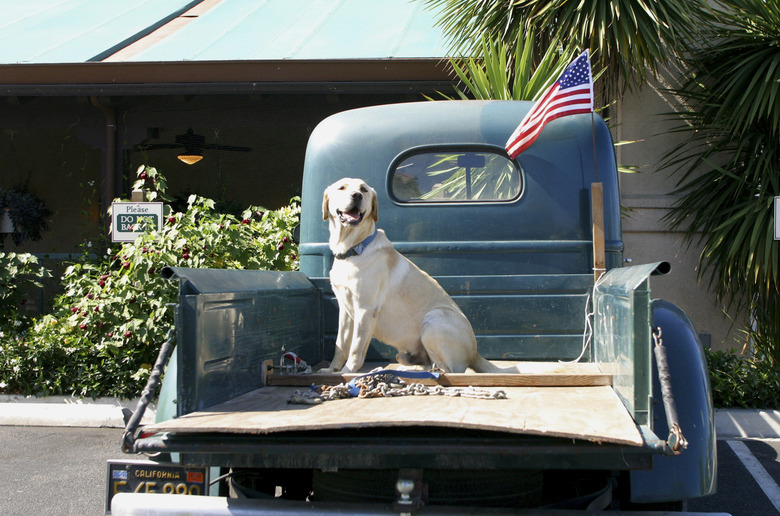Dog Laws In Florida
All pet owners need to adhere to local and state regulations so that both animals and humans can live in peace. Dog laws in Florida are similar to those found in the rest of the U.S. and most of them pertain to safety, the leashing of pets, biting, and various vaccinations a dog must receive. As a responsible pet owner, it's your duty to ensure that your dog doesn't cause physical or monetary damage to people, other pets, livestock, or property. The Florida rabies law also requires owners to vaccinate their dogs against rabies and follow the regulations of the county in which they live.
Damage caused by dogs
Damage caused by dogs
Dog bites are no joke and some may even require reconstructive surgery. According to the American Society of Plastic Surgeons, dog bite repair rose by 10 percent in the last decade as more than 48,000 Americans underwent reconstructive operations due to canine attacks. A Florida statute states that a dog owner is liable for damages to a person bitten by his dog, either in public or legally on private property — even the home where the dog resides.
Dog laws in Florida state that if your dog bites a person trespassing on your property, you're not liable for damages. Owners whose dog bites as a result of provocation, teasing, or tormenting also are exempt from the law. Under Florida law, a dog whose attack results in a serious injury or fatality will be confiscated by local authorities and held for 10 business days. You are entitled to a hearing during that time. If you waive the hearing or the judge decides it is appropriate, your dog will be euthanized.
Be sure to maintain control of your pet as Florida dog laws state that you are liable if your dog injures or kills another pet or livestock. A rancher even has the right to kill a dog menacing his livestock.
Dogs classified as dangerous
Dogs classified as dangerous
Under the Florida dangerous dog section of this state's statute, an animal control officer will investigate if your dog bites, injures, or attacks people or other animals. He will interview you and could impound your dog or ensure that you can keep him safely secured during the investigation.
If your dog is classified as dangerous, you must get a certificate of registration within 14 days, provide a current rabies vaccination certificate from the local animal control office, and provide an enclosure that safely confines your dog. You must post a visible sign that warns of the dangerous dog on your property and install a permanent ID, such as a microchip, on the dog.
You must update the certificate of registration annually and notify animal control if:
- Your dog gets loose or runs away
- Your dog bites a human or animal
- You sell him, give him away, or he dies
- You move the dog to another address
Required Florida dog vaccinations
Required Florida dog vaccinations
Dogs older than 4 months in Florida must be vaccinated against rabies and receive a booster every 12 months thereafter. If you fail to provide your dog with a rabies vaccination, you may be fined. People who wish to sell dogs or puppies must have them vaccinated prior to offering them for sale. Required vaccinations include:
- Canine distemper
- Rabies
- Leptospirosis
- Bordetella
- Parainfluenza
- Adenovirus (canine hepatitis)
- Roundworms
- Hookworms
Ask your breeder for a copy of the vaccinations that are required by law, and follow up with your veterinarian for subsequent vaccinations to ensure your dog's health.
County regulations in Florida
County regulations in Florida
In addition to state statutes, dog owners must abide by county regulations (yup, there's a leash law in Florida counties). For instance, in Miami-Dade County, ordinances for pet owners state that:
- Dogs must be leashed in public.
- Florida pitbull laws here say it's illegal to own pit bulls.
- Dogs 4 months and older must be licensed and wear a tag.
- Unreasonable or excessive noise from an animal (like dog barking) is prohibited.
Check your local county's dog laws to make sure you're in compliance.
References
- Florida Department of Health: Rabies
- American Society of Plastic Surgeons: 2020 National Plastic Surgery Statistics
- 2020 Florida Statutes: Damage by Dogs, Dangerous Dogs
- The Florida Senate: Rabies vaccination of dogs, cats and ferrets
- Oakland Park Animal Hospital: Vaccinations Required By Law
- Miami-Dade County: Regulations


